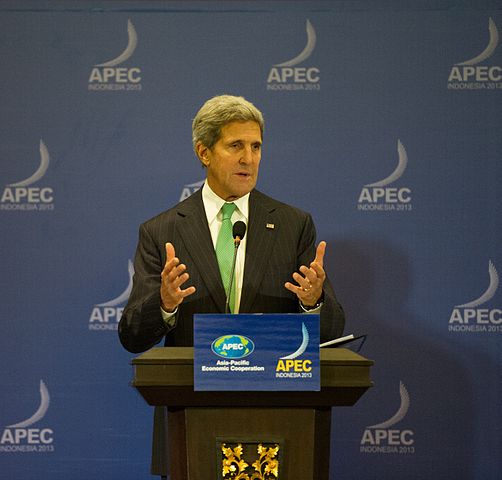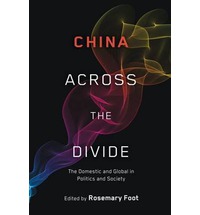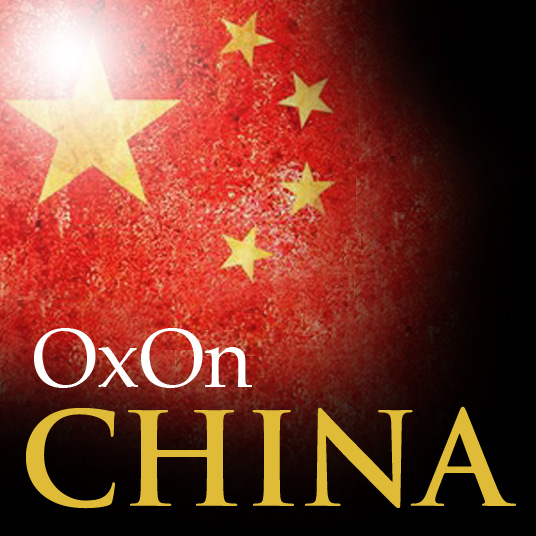 Over the past decade, Chinese priorities have shifted. Before, foreign aid, investment and technology were an import. Now, each is an export. The speed and scope of this change—as Chinese firms, diplomats, traders and cash ‘go out’ in ever-increasing numbers—has ignited controversy and hyperbole. These debates rage in advanced economies in response to China’s rising clout and the acquisitions of global brands by its rapidly internationalising firms.
Over the past decade, Chinese priorities have shifted. Before, foreign aid, investment and technology were an import. Now, each is an export. The speed and scope of this change—as Chinese firms, diplomats, traders and cash ‘go out’ in ever-increasing numbers—has ignited controversy and hyperbole. These debates rage in advanced economies in response to China’s rising clout and the acquisitions of global brands by its rapidly internationalising firms.
They are also at fever pitch in the emerging world—where China has become an important new financier, development partner, and source of foreign direct investment (FDI). This is nowhere more visible than in Africa, where Chinese engagement has received far more attention than seems warranted at first glance. Chinese FDI flows to Africa make up only around two to four percent of the country’s total outward investment each year. Chinese FDI stock on the continent is a fraction of investments in Europe and the United States. However, these figures are growing rapidly, buttressed by an explosion in trade volumes—nearly doubling in the past four years alone to an estimated $200 billion in 2012—as well as deepening diplomatic engagement, development assistance, and accelerating migration between the two regions.
There are diverse motives for China’s increasing economic engagement with the continent—resource acquisition, the transfer of manufacturing capacity abroad, the upgrading of newly internationalising firms, and opening new markets to Chinese exports. These international priorities have a strong domestic impetus, as Beijing struggles to engineer a structural transition at home—from the world’s manufacturing floor to a sustainable modern economy. However, the high profile China-Africa relationship also marks a trend that says as much about Africa’s changing place in the global order as it does about the rise of China.
Over the past decade, many African countries have posted high growth rates, improved governance and business environments, and boast a growing middle class: the decade between 1999 and 2008 has been Africa’s best in terms of expansion of GDP since the 1960s. In the post-crisis world, investors—especially those from emerging markets—who see diminished prospects in traditional markets are looking for new growth opportunities. This is true in terms of selling products to emerging customers and in terms of securing key production areas in the future.
But China is not the only guest at the party. According to a recent UNCTAD report, in 2012 developing countries, for the first time, attracted more FDI than advanced ones. In Africa, the composition of investment from new partners is notable. Capital from BRICS countries accounted for a quarter of all FDI flows in 2010, and nearly three quarters of investments in non-resource sectors. This means that after decades of stagnation, key African markets—Nigeria, Angola and South Africa, but also increasingly countries with less extraordinary resource endowments like Kenya, Ethiopia or Rwanda—are attractive for more than their primary resources. Their markets are quickly becoming much more crowded and competitive. In turn, this gives African governments more freedom to dictate their relations with foreign partners and to articulate their own development goals. This new-found leverage matters greatly in political terms to African elites.
Making China work for Africa
In a recent exchange in the Financial Times, Nigerian Central Bank Governor Lamido Sanusi warned that China is in Africa solely to pursue its own agenda, and Africa’s rose tinted view of the Asian giant must give way to hard-nosed economic thinking. Rather than expecting Chinese engagement to automatically deliver inclusive growth and job creation in Africa, he argued, it is up to Africans themselves to ensure the new partnerships work to their advantage. Among other issues, he targeted trade issues and the effect of large volumes of Chinese goods on local economies and local producers. Qu Ming, President of the China Institute for International Studies, retorted that Sanusi’s accusations were unfair and inaccurate, highlighting Chinese initiatives to encourage African manufacturing, and arguing that China has been and will continue to be a good development partner to the continent.
It is not the first time that African dignitaries have used accusations of neo-colonialism to signal their displeasure with status-quo international relations based on the exchange of primary resources for manufactured goods. Given Africa’s role in the global economy in the last few centuries, debates about a different way of engaging with international capital flows are of great significance to the continent’s future.
However, there is no consensus in African capitals over the best way to link new sources of investment to national development goals and structural change. Relations with China and other new partners have reopened the development debate, one previously settled under the banner of Western-backed economic liberalism. Yet Africans are again discussing the role of the state in economic change, and there is a new, and welcome, emphasis on the tangibles of development (production, infrastructure and employment) in addition to intangibles (democracy and governance championed by the Washington Consensus). For example, Ethiopia’s growth rates of close to 10 percent per annum are the product of the combination of soaring investment in dams, railways and roads (often in partnership with Chinese firms); a continued reliance on Western aid (to the tune of more than $4 billion annually); and, crucially, a domestically crafted strategy of agriculture-led development first.
But economic change creates winners and losers, and the deepening relationship with China is no exception. The presence of Chinese nationals in Africa’s informal economies—displacing petty traders and artisanal gold miners at the bottom of the socio-economic ladder in places like Congo, Mozambique and Zambia—will continue to be a flashpoint for China-Africa relations, as will the volume of cheap Chinese goods moving through porous borders. In the short term, the continent’s desperate infrastructure deficit combined with China’s able, inexpensive, and contract-hungry construction firms is a happy marriage. However, it is the ways in which Africans can link Chinese investment in manufacturing and services to their own attempts to effect structural change that will determine the long-term impact of the China-Africa relationship. Ethiopia, but the likes of Kenya and Nigeria too, are key political economies to watch in the coming years as they try to balance Western suitors and emerging market partners to move into higher developmental gear.
In the end, Sanusi and Qu are both right. China is indeed pursuing its own interests in Africa, but those interests are more multifaceted than a simple resources-for-manufactures swap. Africa’s new international relations need not mimic the colonial ones of the past. Much of Africa today is vibrant, growing, and full of opportunity for foreign investors and local populations alike. This gives Africans more options than ever before. Ultimately, it is up to Africans to use this crucial moment in continental economic history to escape the low-income trap by redefining the continent’s relations with the global system. Doing so would not just lift millions of Africans out of poverty, but would also provide a welcome boost to long-term global growth.
This post is part of OxOn China, a collaborative blog series between Politics in Spires and the Oxford China Centre.
The Oxford University China-Africa Network (OUCAN) brings together academics, policy makers, and industry experts from four continents to push forward research on Sino-African issues. We host a number of international conferences each year—themes include China as a Development Actor; New Actors in African Media; Sustainable Development in the China-Africa Partnership; and Emerging Market Investors in Africa. Find out more at www.oucan.politics.ox.ac.uk









1 Comment
I would concur that this “new-found leverage” is the one critical element that Africa requires; and it must be emphasized that this leverage should be articulated primarily to address the infrastructural deficit. To this end must be applied a sustained and high level of business indeginisation programmes so as to rapidly increase the local stakes. Indeginous people must have a high stake in land (and therefore mining sectors) as an insurance against environmental damage and unsustainable programmes. Therefore land ownership by the indeginous population is the fundamental plank, without which all development is exploitative or at best fragile. The accelerated land acquisition by foreign companies in a growing number of African countries make very poor reading. The companies I refer to are not Chinese.